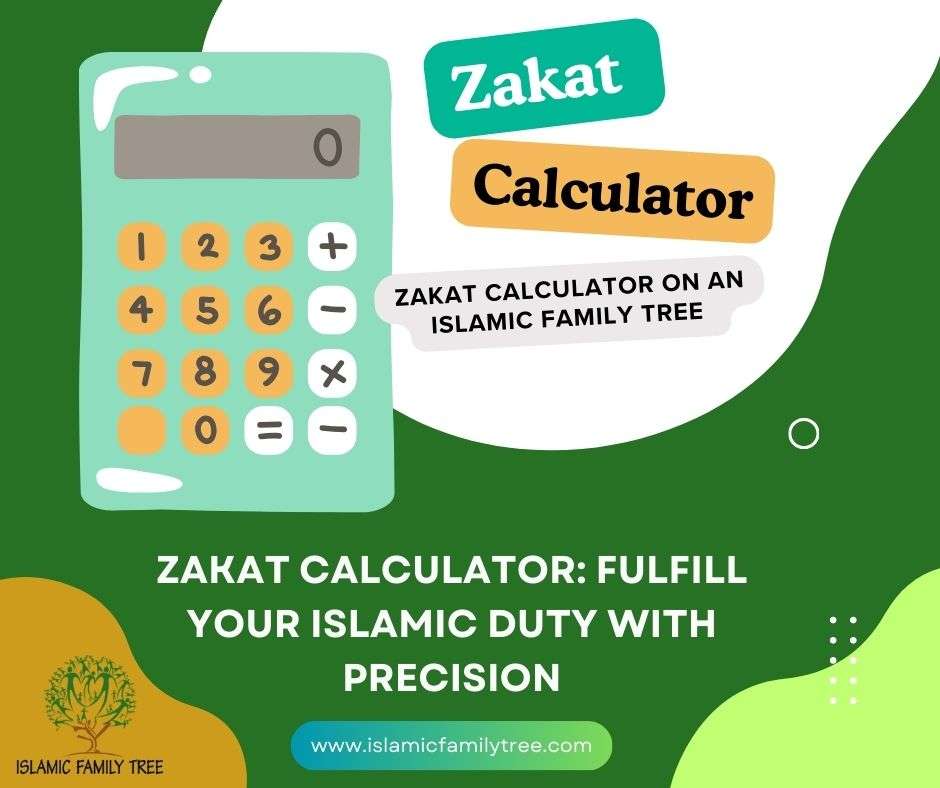
Zakat is one of the Five Pillars of Islam and is a mandatory form of almsgiving intended to help those in need and maintain social justice. It is an obligation for financially capable Muslims to give a portion of their wealth to the less fortunate. The amount of Zakat is typically 2.5% of one’s accumulated wealth, including savings, investments, and certain types of assets, after deducting necessary expenses.
To calculate Zakat, it is important to consider various factors such as savings, investments, gold, silver, and business assets. The process can be intricate, and for accurate calculations, many Muslims turn to Zakah calculators available on Islamic family tree websites, including Zakah-Calculator.
Here’s a basic guide on how to calculate Zakat using a Zakah calculator on an Islamic family tree website:
Gather Financial Information:
Collect information about your savings, investments, gold, silver, and any other Zakatable assets.
Deduct outstanding loans and necessary expenses from your total assets.
Use a Zakah Calculator:
Visit an Islamic family tree website that offers a Zakah calculator, such as Zakah-Calculator.
Input the details of your assets, including cash, savings, gold, silver, and other eligible items.
Review Results:
The Zakah calculator will provide you with the amount of Zakat you owe based on the information you provided.
Note the total Zakat amount and the specific amounts for each category of wealth.
Payment of Zakat:
After calculating Zakat, it is essential to pay the determined amount to those in need.
This can be done directly to individuals, charitable organizations, or through established channels in your community.
Record Keeping:
Keep a record of your Zakat calculations and payments for reference and to fulfill your religious and pe
Zakat is one of the five pillars of Islam and is a compulsory form of charity aimed at helping the poor and maintaining social justice It is financially obligatory for Muslims to donate part of their wealth to the less fortunate. The zakat amount is usually 2.5% of the accumulated wealth including deposits, investments and various assets after deducting the necessary liabilities
To calculate Zakat, it is important to consider various assets such as savings, investments, gold, silver and business assets. The process can be complicated, and for more accurate calculations, many Muslims turn to zakah calculators on Islamic genealogy websites, including zakah calculators
Here are some basic guidelines on how to calculate Zakat using the Zakah Calculator on the Islamic Genealogy website:
Gather financial information:
Gather information about your savings, investments, gold, silver, and other Zakatable assets.
Deduct unpaid debts and necessary expenses from your total assets.
Use the Zakah Calculator:
Visit the Islamic Family Tree website that provides Zakah calculators, such as Zakah calculators.
Keep a statement of your assets, including cash, investments, gold, silver, and other legitimate assets.
Check out the results:
The zakah calculator will give you the amount of zakat on your loan based on the information you provide.
Determine the total amount of zakat and the specific amount per category of wealth.
Payment of Zakat: .
It is necessary to calculate Zakat and give the fixed amount to the poor.
This can be done directly for individuals, charities, or through media agencies in your area.
Record Keeping:
Keep a record of your zakat calculations and payments for reference and to keep in your religious pen
- Zakat
- Zakat calculator
- Islamic charity
- Almsgiving
- Wealth purification
- Muslim giving
- Financial obligation
- Islamic finance
- Charity calculation
- Social justice
- Muslim philanthropy
- Sadaqah
- Zakat fund
- Giving back
- Zakat duty
- Wealth distribution
- Islamic values
- Financial responsibility
- Community support
- Generosity


